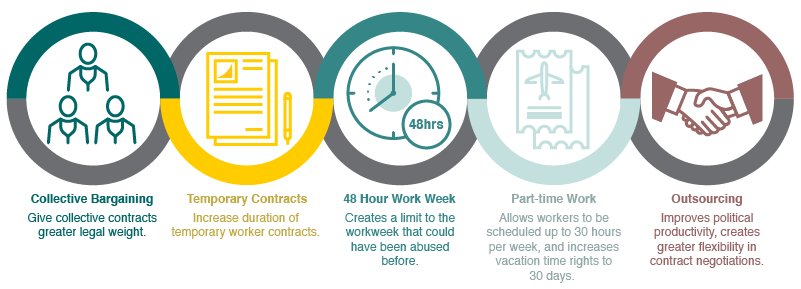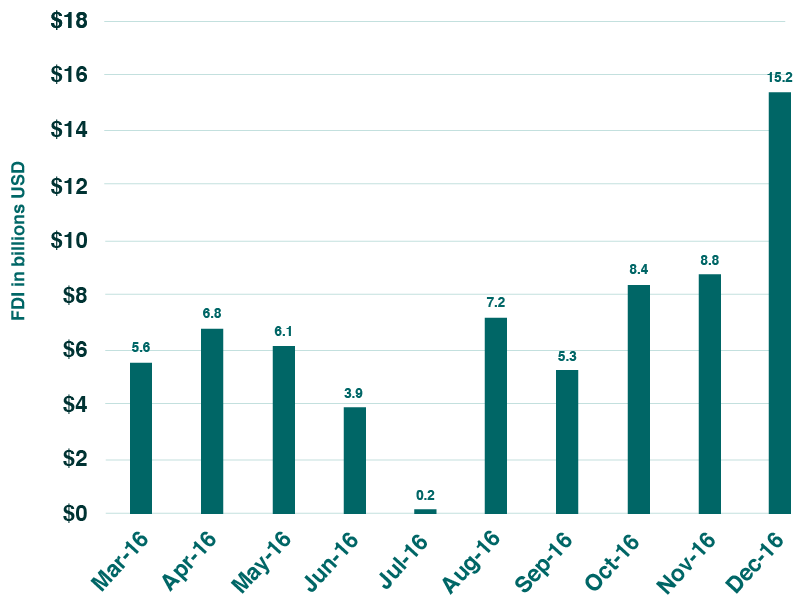Former Brazilian President Luiz Inacio Lula da Silva has been sentenced to 9.5 years in prison for money laundering and corruption. Though Lula da Silva remains one of the most popular presidents in Brazil’s history – he is credited with lifting millions out of poverty – his recent conviction signals another win for the comprehensive investigations into political corruption at the highest level in Brazil. Despite the fallout from “Operation Car Wash”, Michel Temer’s administration has remained focused on implementing the changes necessary for driving growth in Latin America’s largest economy.
In June, President Temer was also accused of corruption, however, he has vehemently denied the charges, claiming that the accusations are politically motivated. A congressional committee voted yesterday to reject the recommendation that Temer be considered for suspension from the presidency by 40-25 votes, confirming Temer’s congressional support and a desire to move the country forward. With an ambitious, and so far successful, legislative plan to revive the country’s economy, Temer has been able to implement much of his social and economic agenda. The night before Lula’s conviction, he was successfully able to pass an important labor reform bill with a 50-26 vote from the Senate. This reform will pave the way for businesses to have more flexibility to allocate work hours and vacation time while regulating remote work. This is the first major overhaul of labor rules in Brazil in 70 years, opening up the Brazilian labor market and creating a more flexible workforce at a time when unemployment in Brazil is nearing record highs. Importantly, it signals a vote of confidence in the incumbent’s center-right politics.
.
Labor Reform Bill
Source: Brazil Politics, Puls 55 (2017)
.
While the political climate remains uneasy due to the allegations against much of the political elite, Mr. Temer’s economic proposals remain on track and have maintained the support of Congress. Stronger economic growth prospects for Brazil are increasing, with the International Monetary Fund raising growth forecasts for the country from 0% to 0.2% for 2017. 1.7% growth is expected in 2018, a decent rebound after the recession of 2015 and 2016. Continued progress in important social and economic reforms will make the country more open to the international economy, increasing its status as an attractive destination for foreign investment.
With the goal of reintroducing Brazil as an economic powerhouse with fantastic investment opportunities, Temer has been promoting his economic agenda at an international level. At the G-20, Temer’s Finance Minister, Henrique Meirelles, reassured global leaders that, “the economic team is on board…you can continue investing, consuming [and] the country will continue its growth path.”
.
FDI increases in Brazil
Source: World Bank (2017)
.
With Lula’s conviction, Brazil continues its battle to stamp out corruption in its political system. Brazilian markets traded higher through the day following the announcement of Lula’s conviction, with fears allayed about the prospect of leftist Lula’s presidential campaign in 2018 derailing Temer’s efforts to curb public debt growth and implement major structural reforms. Despite Lula’s positive reputation across certain segments of Brazil, his conviction opens up the presidential elections of 2018, which will likely benefit the current administration and ensure a continuation of the open economic policies that have driven the country out of recession.
We at Primal Group are under no illusions as to the historic corruption in Brazil and feel that you would be hard pressed to find a politician that has a completely unblemished past. However, we are seeing that the tide has turned, that corruption will diminish following the high-profile prosecutions of the last 18 months, and welcome this change. Brazilian politics has taken a turn towards the center-right and the appetite from genuine change makers of the younger generation is increasing in pace. We remain confident that the Temer administration will take heed of the winds of change and will continue in its ambitious, and important, reforms aimed at reenergizing the Brazilian economy. In this new age of political uncertainty around the globe, Brazil’s pro-market direction will strengthen the country’s undoubted fundamentals and ensure stronger, sustainable growth in the medium to long-term.

